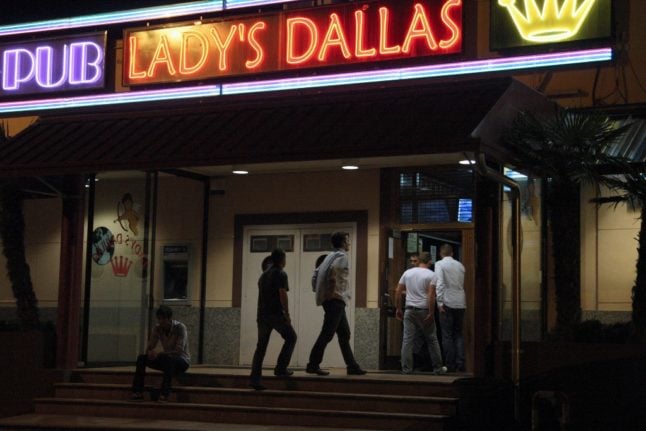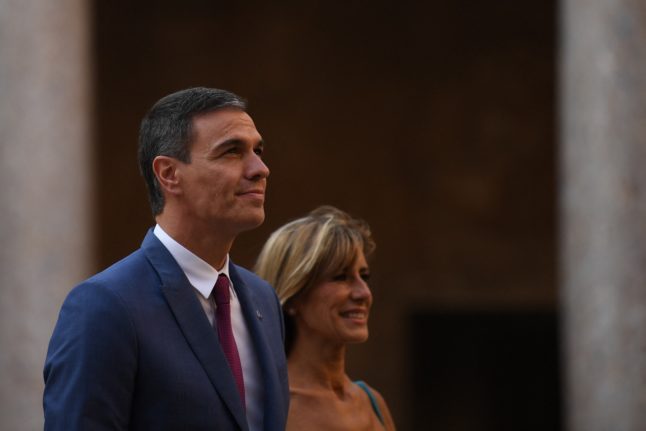In February, news of ‘el Caso Mediador’ (the ‘Mediator Case’) broke in the Spanish press, revealing a far reaching corruption plot that involved a former PSOE Deputy, a retired Civil Guard general, extortion and preferential business treatment, as well as drug-fuelled parties with prostitutes during the height of the Covid-19 pandemic.
It could be described as a sleazier version of the UK’s very own ‘partygate’ scandal given its resemblance with those in power ignoring Covid restrictions. And although it does not involve the Prime Minister as in Britain’s case, it does reflect how corruption in Spanish politics is alive and well.
On February 14th 2023, the first arrests were made in the Canary Islands, the epicentre of the scandal, as well as across several other regions of Spain.
READ ALSO:
- Spain falls further in international corruption league tables
- What’s the law on prostitution in Spain?
What is Spain’s Mediator Case?
Allegedly, the corruption plot offered businessmen and entrepreneurs in the Canary Islands preferential treatment for the procurement of public contracts, but also extorted them in exchange for favourable treatment during inspections and access to European aid funds.
These backroom deals were put together and celebrated at lavish parties with prostitutes, alcohol and cocaine, some of which were during the Covid-19 pandemic ‘state of alarm.’
At the time of one meeting, a private dinner for 15 in Madrid in October 2020, private meetings of more than six people were banned under the Covid-19 regulations, according to El Independiente.
Who was involved?
The plot revolves around four key figures.
One is the former PSOE Deputy in Congress for the Canary Islands, Juan Bernardo Fuentes Curbelo, known as ‘Tito Berni’. Fuentes was still a deputy when news of the scandal broke, and he is now being investigated for bribery, money laundering, peddling influence, among other charges.
The second is Francisco Espinosa Navas, a former Guardia Civil general who once headed a European task force against terrorism and organised crime in the Sahel. Espinosa, so far the only one of the involved parties to be held in prison, is accused of bribery and criminal organisation, on suspicion of having taken bribes after rigging four public contracts valued at over €260,000 of EU funds.
Canarian businessman Antonio Navarro Tacoronte is alleged to be the third conspirator, the ‘mediator’ who put the different parties in contact, made sure bribes were received, and organised the meetings.
The fourth was Fuentes’ nephew Taishet Fuentes, who replaced his uncle as the Director of Livestock for the Canary government and is alleged to have been involved in the extortion of businesses figures from the livestock sector. PSOE had recently put him on an electoral list in Las Palmas ahead of regional elections in May.
READ ALSO: Is Spain as corrupt as it was a decade ago?
How did it work?
According to Spanish outlet 20minutos, the prosecutor’s report outlines that “the first step” in the scheme was that interested businessmen made a payment €5,000, a tax of sorts, to the Vega Tetir Sports Association, which was chaired by Fuentes.
This payment would allow them inside the circle, and the donations were to be made in a “subtle and affectionate” way, while Fuentes assured them that it was for “the children,” according to a statement made by Tacoronte.
READ ALSO: Catalonia’s separatist parliament speaker suspended over corruption charges
Criminal investigators have since found evidence of transfers to the bank accounts of the partners or relatives of those involved.
The ringleaders allegedly met with with prospective businessmen at the Congress of Deputies and even the the Guardia Civil headquarters in Madrid in order to appear professional and convince potential businessmen to join the plot. After paying the initial fee, the deals were celebrated at “big parties” in hotels and brothels with prostitutes, alcohol and drugs intended to impress the donors.
According to the court summary, the average bill for these events was around €3,000. Tacoronte has since told radio station Cope Canarias that “it was like a catering with full service… in the midst of the pandemic.”
What did they do?
According to the Tacoronte’s statements, six Canary Islands-based companies – including a dairy, cow farm, cattle ranch, a drone company and a solar panel manufacturer – made the payments in order to benefit from the scheme.
In one instance, investigators believe that Espinosa helped businessmen to sell his cheese products to the SPAR supermarket chain, and another also managed to sell his drones to Spain’s Interior Ministry, and the Guardia Civil’s Logistics Support Command, valued at €119,064, for the delivery of drone detection and location equipment.
With the help of ‘el mediador‘ and the other alleged conspirators, the businessmen even sold drone technology to the Ministry of Defense, specifically the Spanish Army, for €14,997.
What happens now?
The case is headed by Judge María de los Ángeles Lorenzo-Caes of Santa Cruz de Tenerife’s Court Number 4.
The case is investigating 12 people of interest, and all of the alleged plot members have testified and been released with charges except for Espinosa, who was held. All are being investigated for money laundering, forgery, bribery, peddling influence, and membership of a criminal organisation.
READ ALSO: What’s the law on prostitution in Spain?



 Please whitelist us to continue reading.
Please whitelist us to continue reading.
Member comments